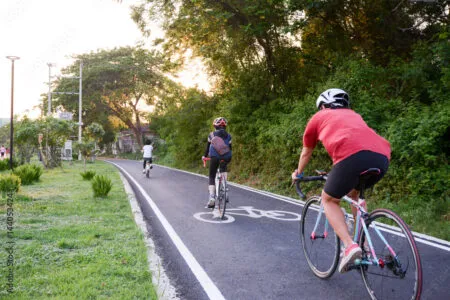The Texas Department of Transportation (TxDOT) has presented its 10-year, US$70bn Unified Transportation Program (UTP) to the Texas Transportation Commission, detailing the project funding plan that is aimed at enhancing safety, reducing congestion, improving connectivity, and maintaining the state’s massive highway system.
TxDOT is responsible for maintaining 80,000 miles (128,750km) of road across the state, and the proposed updates to the UTP dedicates funding for 1,210 centerline miles (1,950km) of added capacity and improvements, including US$2.5bn in projects to relieve congestion as part of the agency’s ‘Texas Clear Lanes’ initiative. Due to Texas voters, who in 2014 and 2015 approved additional funding in the form of existing oil, gas and sales taxes, and the commitment of governor Greg Abbott and the Texas legislature to keep highway dollars dedicated to the state’s roadways, TxDOT is able to provide additional funding for priority transportation projects. If approved by the Commission in March, the updated UTP will dedicate the additional Category 12 funding to the Texas Clear Lanes initiative, which aims to reduce congestion in the state’s major metropolitan areas.
The program is designed to help plan for the huge population growth expected to take place in Texas over the next few decades. The additional US$2.5bn funding will be spent on 19 new projects over the next four years, which is above what is already in the UTP. The projects cover the Austin, Dallas/Fort Worth, Houston and San Antonio metropolitan regions, and include: reconstructed interchanges and ramps,; pavement rehabilitation; multiple lane expansions; and the conversion or introduction of express lanes, featuring high occupancy vehicle (HOV) and ‘managed’ lanes featuring the latest ITS technologies.
According to a Texas Transportation Institute (TTI) study, growth-induced traffic gridlock is getting worse every year in the five cities, which all have populations over one million, and represent more than 65% of the state’s residents. They are also home to 97 of the ‘Top 100’ most congested roadway segments in the state, with each metro area having at least 11 segments on the list, which translates to an average of 52.6 annual hours of delay per commuter.
“Mobility not only benefits individual drivers, but also the Texas economy, as goods and services move safely and efficiently across our state,” said Texas Transportation Commissioner, J Bruce Bugg Jr, who is leading the Commission’s focus on reducing congestion. “As our state’s population grows, the 12,000 men and women of TxDOT will continue to collaborate with state and local leaders to find feasible solutions for funding specific projects that TxDOT will execute upon expeditiously, to keep people and freight moving throughout our state.”
TxDOT’s deputy executive director, Marc Williams, commented, “We appreciate the support of Texans and we stand ready to deliver on these projects that will help ease their commutes. Most of TxDOT’s budget is dedicated to Texas roadway projects and we stand committed to putting those dollars to good use for our citizens.”




